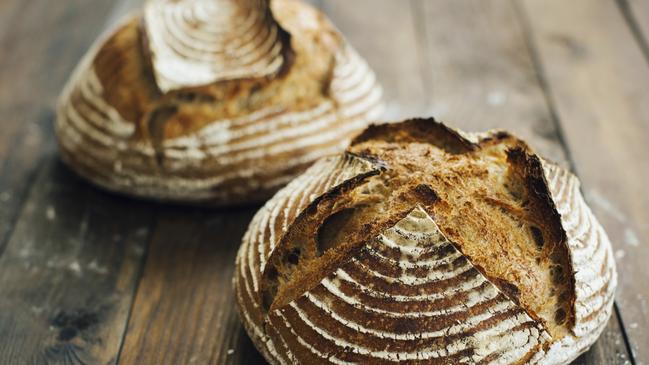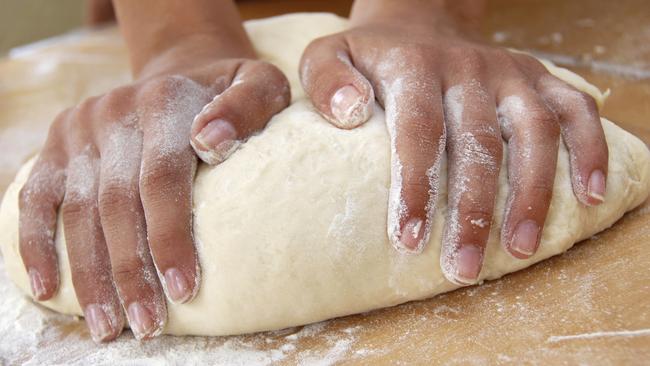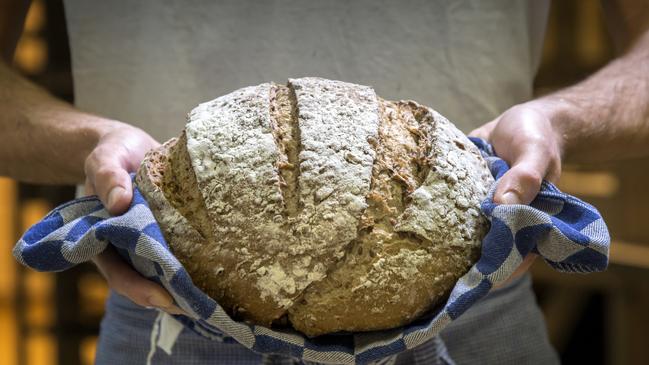Baking bread: The self-isolation practice of COVID-19 that’s blowing up Instagram
Confused as to why your social media feed is now an endless sea of homemade sourdough? Turns out there’s some logic (beyond passing the time) to this coronavirus obsession, writes Katy Hall.
Rendezview
Don't miss out on the headlines from Rendezview. Followed categories will be added to My News.
No, you’re not imagining it, everybody you have ever befriended on the internet is suddenly baking bread.
And if not bread, then rolling fresh pasta. Or flipping pancakes. Or slow cooking beef. Or decorating a cake that’s method boasts an impressive 72 steps (you know it has 72 steps because they have, of course, mentioned this in their Instagram Stories documenting the process).
Such is the new world order in the time of COVID-19, where millions of people around the world are confined to their homes with no end in sight, and it has become a situation of evolve or perish by way of having to eat awful meals over and over and over again.
To older generations, this explosion of sudden interest in learning what, in some ways, could be considered very basic life skills, must seem novel. And in some ways it is, but it’s also not surprising.

Because unlike any generations before us, Millennials and Gen Zs grew up in households where, for the first time in history, the vast majority of families saw both parents working full-time. Meaning that many of us came of age in an environment where food, and the preparation of it, wasn’t so much about the act of cooking or the joy of preparing a meal as it was an end game to satisfy hungry people before they moved onto their next activity.
That fact, partnered with a huge growth in dining and home delivery culture, meant that for a lot of people, becoming truly good at cooking to the point of mastery became just another thing that we’d get around to one day, but never did. Kind of like learning that second language or finishing Ulysses.
But then a pandemic came along, threw everything into chaos, and presented us with not only a whole lot more spare time, but an abundance of out of work food geniuses looking for something to do.
According to Melbourne cook Alicia Twohill, who lost close to $25,000 when her latest pop-up venture was forced to close due to coronavirus, the upside to all of this is that countless people are now learning a new skill that will serve them for life.

“We’re all connecting with each other in a new way and that’s really nice,” she says, adding that she’s been inundated with requests to show people how to cook the basics (pasta dishes, vegetarian meals and exciting breakfasts) from her home via Instagram.
“It’s taking away the mystique. There’s this idea that cooks and chefs are doing something really special, but we just know what works. And at the moment, it’s now about taking it back to the old school period of our grandparents’ era and creating more out of a smaller amount, and using every part of the plant or animal and being a little bit more conservative, but getting a richer result.”
In recent years, the meditative effects that cooking and baking can have on a person have also begun to be recognised as a legitimate form of treatment for those suffering from depression, anxiety, and a host of other mental health conditions – all of which are currently on the rise.

Known as culinary therapy, the act of preparing food kicks off a kind of mindfulness known as behavioural activation that allows people the opportunity to escape whatever may be going on around them, while also physically and mentally engaging in an activity, and having something to show at the end of it.
Given this pandemic has essentially tossed Maslow’s hierarchy of needs into a blender and garnished it with some curly parsley, it’s no wonder people feeling panicked, saddened and lost are turning anywhere they can, pantry cupboards included, for relief.
And while the end to self-isolation may not yet be in sight, Twohill says there is one obvious positive from all this, aside from the mental health aspect to expanding one’s repertoire.
“Right now you can have some of the country’s best chefs sitting at home and wanting to show you how to make really simple and amazing food for free; that’s probably not going to happen again.”
So really, we should all be taking note and advantage of this temporary opportunity while we can. Because while this confined hellscape too shall pass, the yearning for fresh homemade bread never will.
Katy Hall is a columnist for RendezView.com.au
